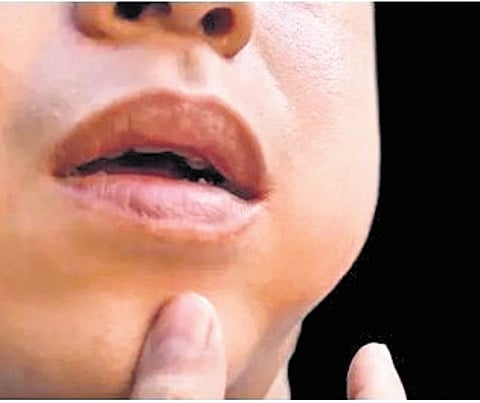

THIRUVANANTHAPURAM : The state is facing an outbreak of mumps, a contagious viral infection that spreads the same way as cold and flu, with over 10,000 children affected in less than 70 days. The average number of children seeking treatment daily has increased from 50 in January to 300 in March, indicating the prevalence of the disease, according to health department data.
Meanwhile, the Indian Academy of Paediatrics has revealed that one in 20 children reporting at outpatient clinics in Kerala now has mumps. They also pointed out that Malappuram and its neighbouring districts have the most number of cases.
The health department has started monitoring the disease prevalence by collecting random samples and sending them for PCR testing. The children seek treatment with mild fever and headache along with the marked symptoms of puffy cheeks and swollen jaws.
According to paediatricians, the virus involved in the recent mumps outbreak has been mild. “What we have seen so far is a milder variant of the virus. The cases involving complications are 50% lower. The recovery usually happens within nine days of the onset,” Dr Johnny Sebastian, preceding state secretary of the Indian Academy of Paediatrics, told TNIE.
Health experts attribute the outbreak to the absence of immunity in the population. The vaccine against mumps is not included in the vaccination schedule of the health department. In private hospitals, two doses of MMR [measles, mumps, rubella (German measles)] is recommended.
“The government vaccination programme covers 95% of the vaccines. So, more people have started taking vaccination from government hospitals and health centres,” Dr Johnny said.
Though the severity of the mumps outbreak is considered mild, experts have demanded a study into its prevalence as the disease has long-term implications, including sterility among males and encephalitis. “The virus may evolve. Once it causes severe illness, we have a problem,” Dr Johnny stressed.
Explaining the reasons for not including the MMR vaccine in the National Vaccination Schedule, Dr Sheeja Sugunan, a paediatric intensivist and an associate professor with the SAT Hospital in Thiruvananthapuram, said: “The mumps vaccine is only 70% effective. That means if 10 people are vaccinated, only seven get protection. Fifty per cent of the cases are among the vaccinated. All these, along with the cost factor, are reasons for not including the mumps vaccine in the vaccination schedule,” she said.